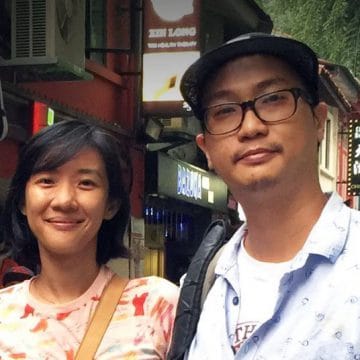In the vibrant cultural landscape of Singapore, the Post-Museum is a dynamic force challenging the traditional confines of a museum. Founded in 2007 by artist-activists Jennifer Teo and Woon Tien Wei, this independent cultural and social space represents a bold departure from conventional art institutions. Beyond its nomadic existence, Post-Museum fosters a pro-thinking and pro-active community, advocating for access to art irrespective of economic means, reflecting the United Nations Sustainable Development Goal of Reduced Inequalities.

Post-Museum's inception was spurred by Singapore's "Renaissance" in the 2000s, a period marked by rapid cultural development and liberalization initiated through new government policies. However, scholars critique this cultural evolution as economically driven, with limited reach beyond certain strata of society. Post-Museum emerged as a response to this limited access to the arts, believing that art should not only elevate the arts but actively participate in shaping a more equitable world, available to people from all walks of life.
Initially operating from 2007 to 2011 in two shophouses, Post-Museum became a cultural hub, fostering diverse practices and connections among cultural practitioners that eventually became nomadic, untethered to a single location. The decision to become nomadic, as explained by Teo and Woon in an interview, allows them to "practice the city" in more meaningful ways, asserting and claiming their "right to the city."
Teo and Woon also share that Post-Museum's early operational ethos emphasized independence, avoiding significant corporate or government support to maintain autonomy in programs and activities. This approach, rooted in creating a 'safe' space for diverse connections, has evolved. While they initially avoided institutional support, the founders now express a desire for more public engagement with government agencies, which will allow for even larger-scale collaborations.
The founders challenge the traditional notions of what is central (renowned public or private entities) and what is peripheral (independent) in the context of Singapore's cultural landscape by creating programs that bridge the two. They highlight the importance of place management and placemaking, emphasizing that every individual is a participant in shaping the city’s cultural sphere. This perspective reframes the role of individuals in creating places, asserting their right to the city as an inclusive, collective, and ongoing process.
This can be understood from their recurring program, Free Market, which is an event where nothing is for sale and everything is shared for free. “Anyone with stuff or skills to share is welcome to participate, and if you find something you want, you’re welcome to take it,” they state on their website, again allowing anyone from professional cultural workers to students to participate.
Post-Museum also does not spend significant time situating itself within the global contemporary art discourse. Instead, they are driven by discourses happening within their proximity. According to OnCurating, one of the main concerns is the increasing influence of bureaucratic middle management in shaping the cultural landscape, often favouring art aligned with perceived national values that alienate certain identities. The founders call for reflection on the responsibilities of audiences and cultural workers in countering these trends.
The sustainability of Post-Museum is framed through the concept of "in-curateable" the which they define as “a range of reasons and logic preventing institutions and art historical discourses from finding the curatorial vocabulary.” Hence, their curatorial identity is fluid, ever-changing, and as ever-expanding as the people of Singapore are. Collective forms, for them, serve as a potent reminder of the people’s agency. By drawing from the mode of collectivizing, they hope to inject a missing 'action' into the art world. Their focus is placed on learning from collective forms and leveraging their potency rather than conventional notions of sustainability.
Post-Museum's current project, Bamboo Broadcast Studio, epitomizes this commitment to community engagement. As part of the 2024 Singapore Art Week's Alternative Ecology exhibition, the studio features a series of programs promoting sustainability, nature, and ecology. The Bamboo Broadcast Studio is a series of free-of-charge activities which rallies communities for awareness, fun, and participation from people who come from all walks of life.
The project includes participatory workshops like the YOUR INNER FISH, presented by Liz Zhu, Aditya, and Jun, which emphasizes the creative transformations of unwanted fashion pieces. Other programs like Being Nature by Li-Anne Tan explore deeper connections with nature, fostering experiential encounters and nature constellations. Additionally, Soil, Community, and Harmony, hosted by Living Soil Asia and Eugene Seah aims to educate about the importance of soil through hands-on activities and community songs of nature.
Post-Museum stands as a testament to the transformative power of art in shaping a more inclusive world. By challenging the conventional museum model, embracing nomadism, and prioritizing community engagement, Post-Museum exemplifies a commitment to reducing inequalities. As it continues to navigate Singapore's evolving cultural landscape, Post-Museum serves as a beacon of inspiration for cultural practitioners, activists, and art enthusiasts alike, illustrating the potential of art to bridge gaps and foster a more equitable society.
